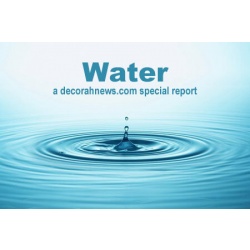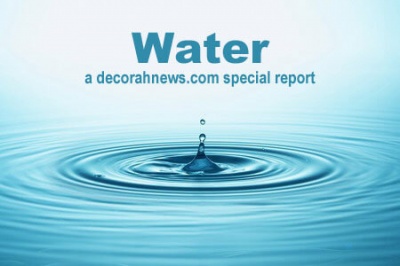
Drinking water quality is improving in Decorah
The City of Decorah treats the water that goes into its sewer system. But the water that goes into its drinking water pipes is treated only with chlorine to kill bacteria and disinfect the water. Otherwise, the water comes straight from six 100-foot deep wells that tap into water from the Upper Iowa River.
That means anything that goes into the Upper Iowa River can also go into Decorah's drinking water supply. The biggest concern is with nitrates, which come largely from runoff from fertilizer use, although to a lesser extent leaching from septic tanks, sewage and erosion of natural deposits. The Iowa DNR sets maximum allowable levels of contaminants. Decorah's drinking water has always been classified as safe, although the level of nitrates found in the water varies from year to year. 2002's testing, for instance, found 8.2 parts per million of nitrates, which was close to the limit of 10 parts per million.
There are seasonal differences in the readings as well. The top ten highest readings for nitrates--all of which approached the limit, but did not exceed it, were all taken in July, when fertilizer runoff can be greatest.
But the nitrate levels in Decorah's drinking water have been generally trending down over the last few years (For the latest water quality report, click on the link below). That's because of cooperative work between Decorah and property owners upstream. Resource, Conservation and Development staffer Ross Evelsizer told an audience Thursday "We have people from both sides of the table" working on programs in this area. He says that's made water quality a less controversial issue here than it has been in central Iowa.
Northeast Iowa RC&D staffer Nathan Thompson says Decorah's reliance on untreated well water for its drinking supply is not unique--smaller communities all over Iowa take water from "surface wells" that are 100 feet deep. That makes the wells "highly susceptible to pollution," he says. He also notes that the sinkholes and fractures that are common in NE Iowa create additional risks to municipal drinking water supplies.
So working cooperatively pays off for smaller towns and communities, reducing nutrient loss on farms and improving drinking water purity for cities.
Site designed and maintained by Iroc Web Design Services©.
Your Small Business Web Design Solutions.™


